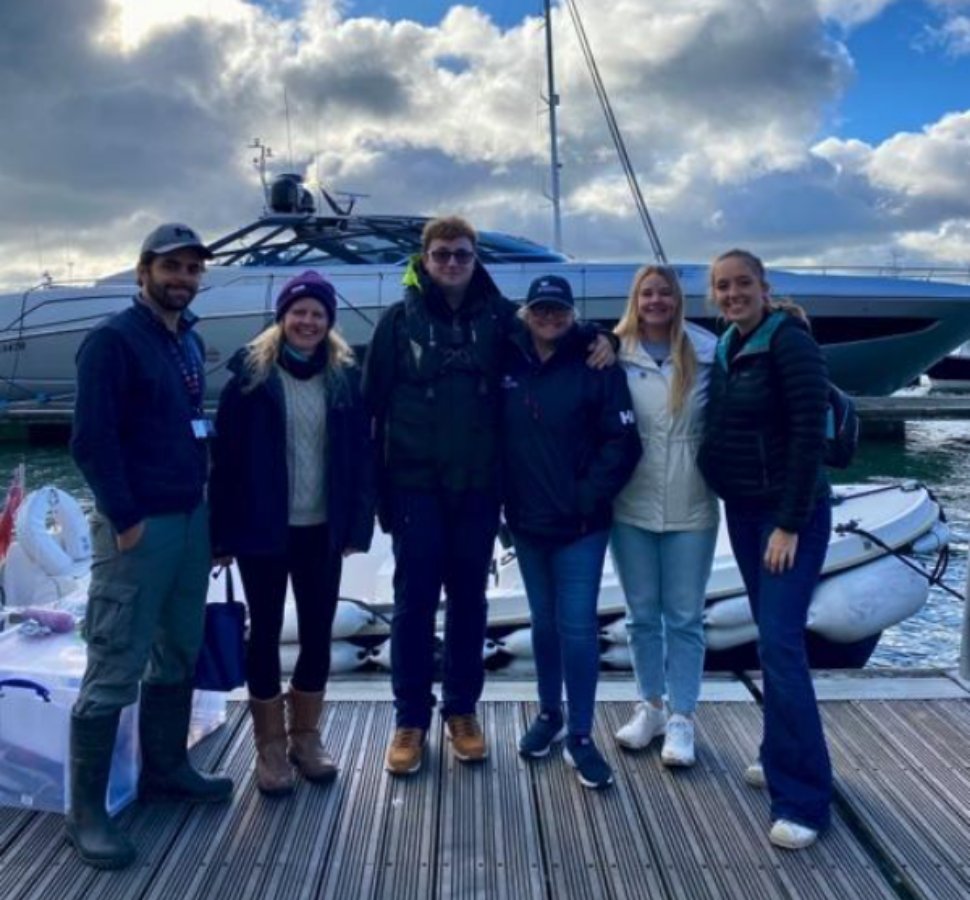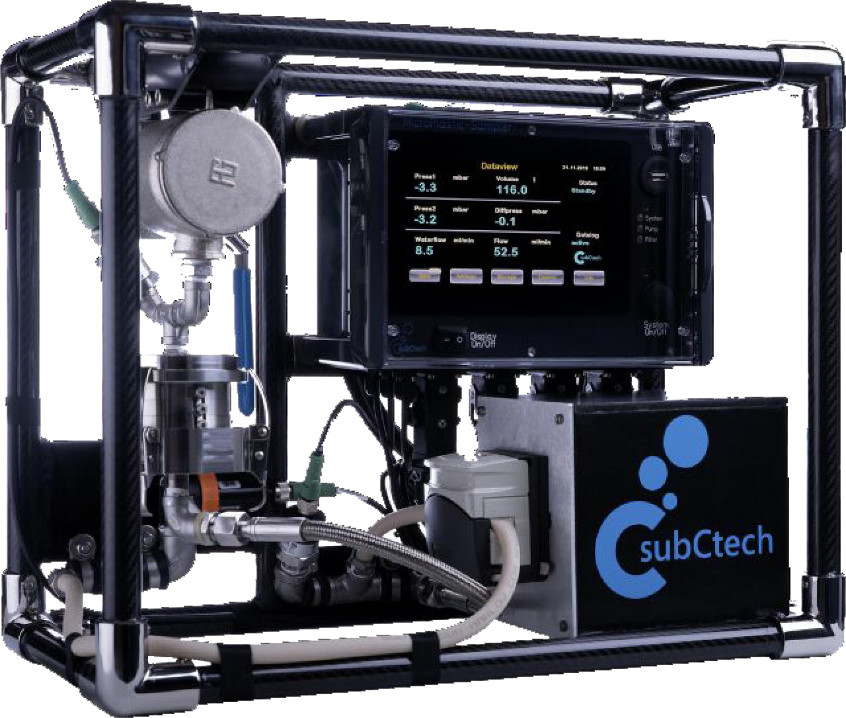
Overview
As the UK leader in ocean research, technological innovation and education, the National Oceanography Centre (NOC) has pledged to discover and share the solutions needed to protect our oceans, our planet, and our futures. NOC’s scientists work across fields and around the globe, uncovering links between the ocean, climate change and biodiversity loss, helping to create an ocean that is clean, safe and sustainable. Beyond the international scientific community, the NOC acts as the voice of UK ocean science, sharing the significance of research findings to the UN, governments, global industry and developing nations to empower their decision making and actions. The NOC also has uniquely close and continuous interaction with the UK government, including DEFRA, the Environment Agency, and the All-Party Parliamentary Group for the Ocean.
L to R: Chris Feltham (NOC), Dr. Alice Horton (NOC), Tom Killick (Port of Poole), Gill, Katie, Victoria Neild (SeaKeepers UK Intern)

The SubCTech Microplastics Sampler
This state-of-the-art microplastic sampling method was successfully deployed during the Volvo Ocean race in 2017-2018 and the Ocean Race in 2023. Once installed on a vessel, sea water is drawn from a defined water inlet towards the instrument using a low-power semi-peristaltic pump. The water then passes a strainer before flowing through a cascade of stainless-steel filter units of defined mesh sizes. The system is equipped with a flowmeter to measures the volume of water filtered, two pressure sensors to detect clogging, and an external GPS antenna to provide accurate position and time of sampling. Only basic training is required for the mariners operating the sampler, which is streamlined, lightweight and simple in operation. The sampler is controlled via touch screen and can be left unattended during sampling during both continuous and event-based sampling. In addition to larger plastic particles, the microplastic sampler catches small microplastics which are likely to cause the most ecological harm. Sample materials occupy very little space. Sample contamination is minimal with the SubCtech Microplastics Sampling as filter sets are exposed to the surrounding for a very brief period of time. All data is internally logged. Data output is possible in real time and can also be downloaded later via USB
Research Project Application
Are you looking to apply for a research project? The International SeaKeepers Society has been involved in assisting significant marine research and ocean conservation efforts through the DISCOVERY Yacht Program since 2014. We are seeking dedicated researchers to provide free vessel support to gather and conduct fieldwork. For each expedition, a scientist is paired with a vessel that can meet the research expedition’s needs, including location, itinerary, and vessel specifications as outlined in the research proposal. To submit a proposal on your next expedition needs, complete the application below.
